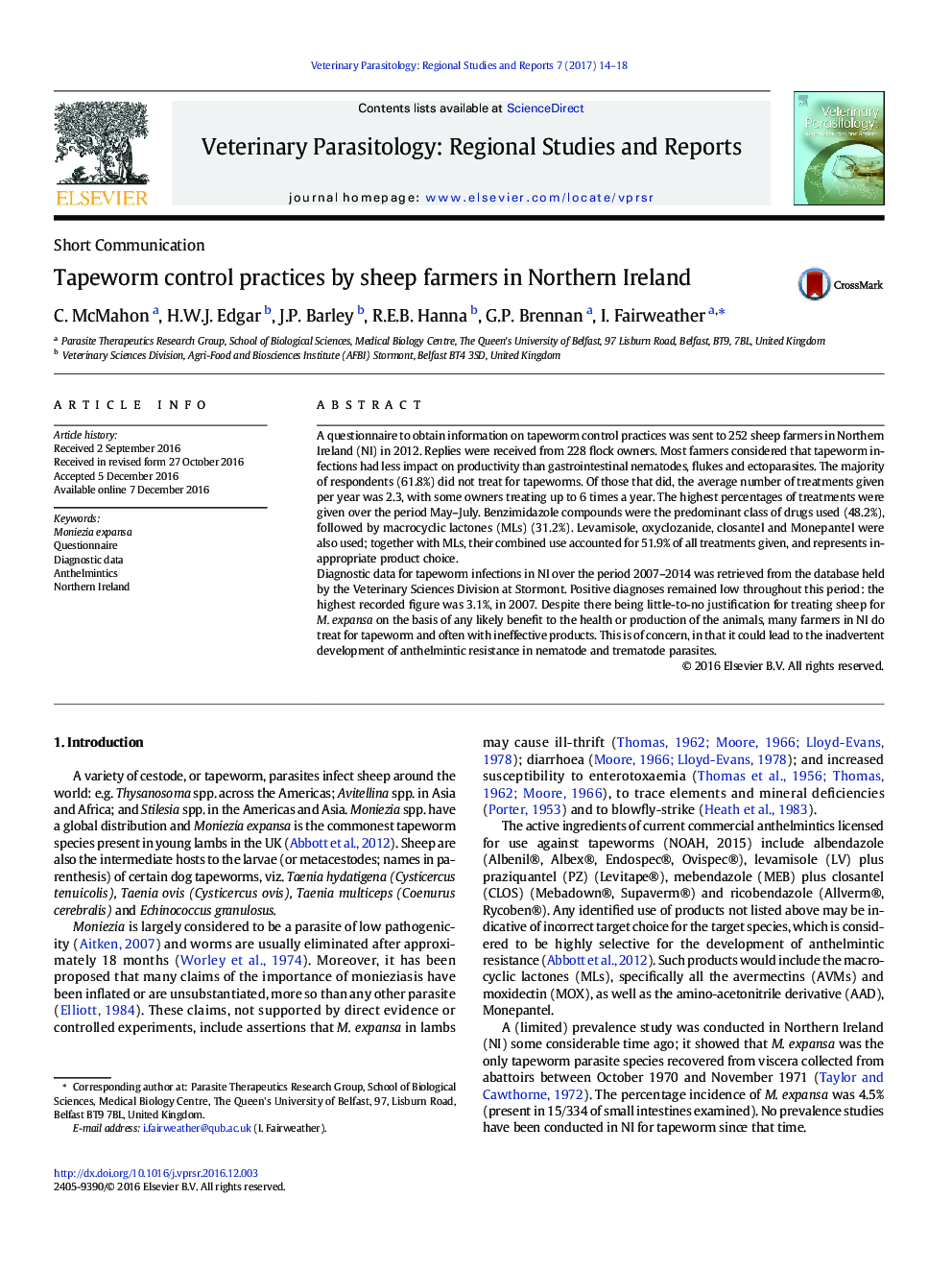| کد مقاله | کد نشریه | سال انتشار | مقاله انگلیسی | نسخه تمام متن |
|---|---|---|---|---|
| 5546068 | 1555867 | 2017 | 5 صفحه PDF | دانلود رایگان |
- A survey on tapeworm control in N. Ireland sheep was conducted in 2012
- Most farmers did not treat for tapeworm, while others treated on average twice per year
- Benzimidazoles were the main drugs given, but inappropriate and ineffective drugs were also used
- Tapeworms were deemed to have the least impact of all parasites on sheep productivity
- Numbers of tapeworm-positive diagnoses were consistently very low from 2007 to 2014
A questionnaire to obtain information on tapeworm control practices was sent to 252 sheep farmers in Northern Ireland (NI) in 2012. Replies were received from 228 flock owners. Most farmers considered that tapeworm infections had less impact on productivity than gastrointestinal nematodes, flukes and ectoparasites. The majority of respondents (61.8%) did not treat for tapeworms. Of those that did, the average number of treatments given per year was 2.3, with some owners treating up to 6 times a year. The highest percentages of treatments were given over the period May-July. Benzimidazole compounds were the predominant class of drugs used (48.2%), followed by macrocyclic lactones (MLs) (31.2%). Levamisole, oxyclozanide, closantel and Monepantel were also used; together with MLs, their combined use accounted for 51.9% of all treatments given, and represents inappropriate product choice.Diagnostic data for tapeworm infections in NI over the period 2007-2014 was retrieved from the database held by the Veterinary Sciences Division at Stormont. Positive diagnoses remained low throughout this period: the highest recorded figure was 3.1%, in 2007. Despite there being little-to-no justification for treating sheep for M. expansa on the basis of any likely benefit to the health or production of the animals, many farmers in NI do treat for tapeworm and often with ineffective products. This is of concern, in that it could lead to the inadvertent development of anthelmintic resistance in nematode and trematode parasites.
Journal: Veterinary Parasitology: Regional Studies and Reports - Volume 7, January 2017, Pages 14-18
